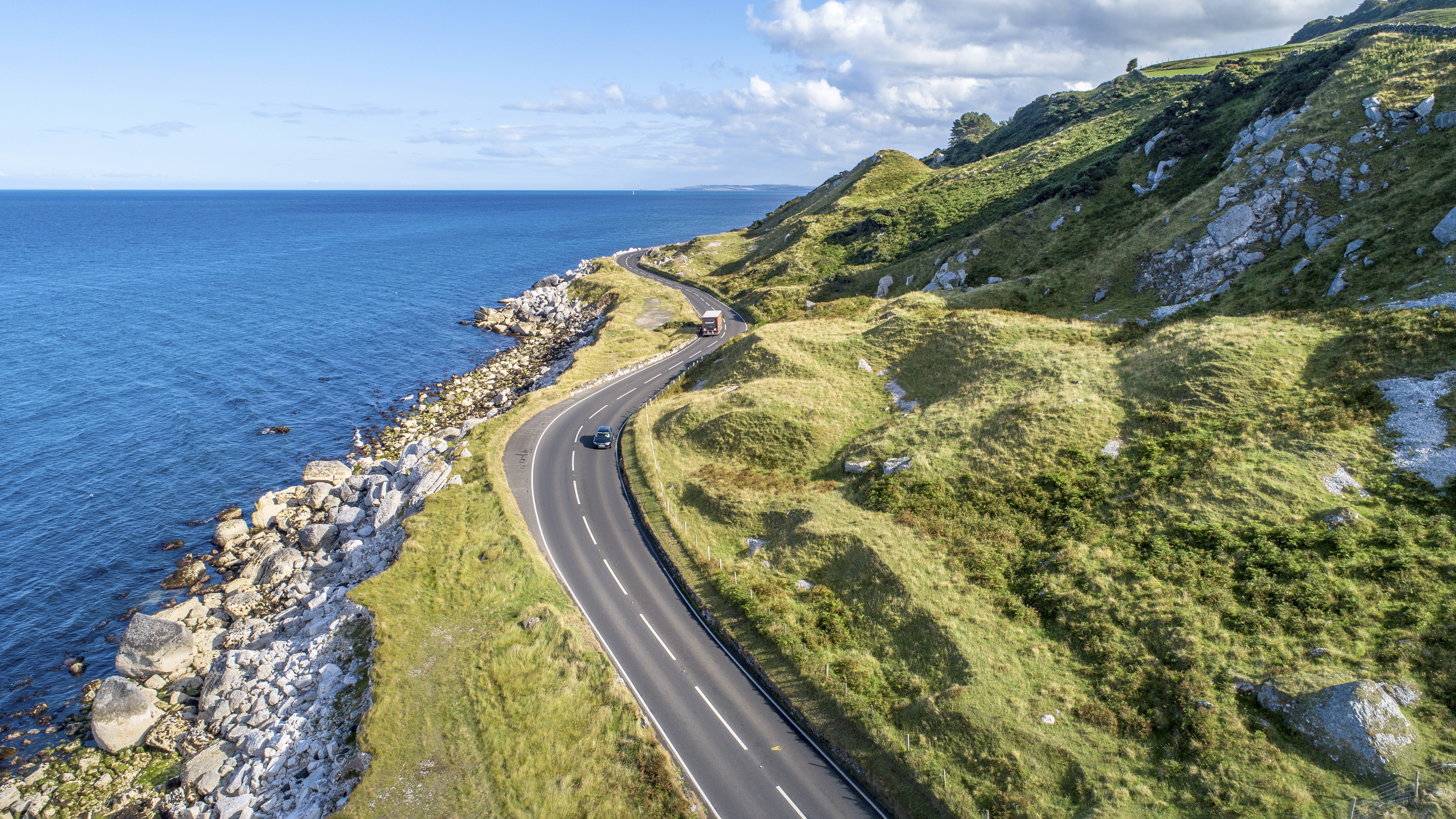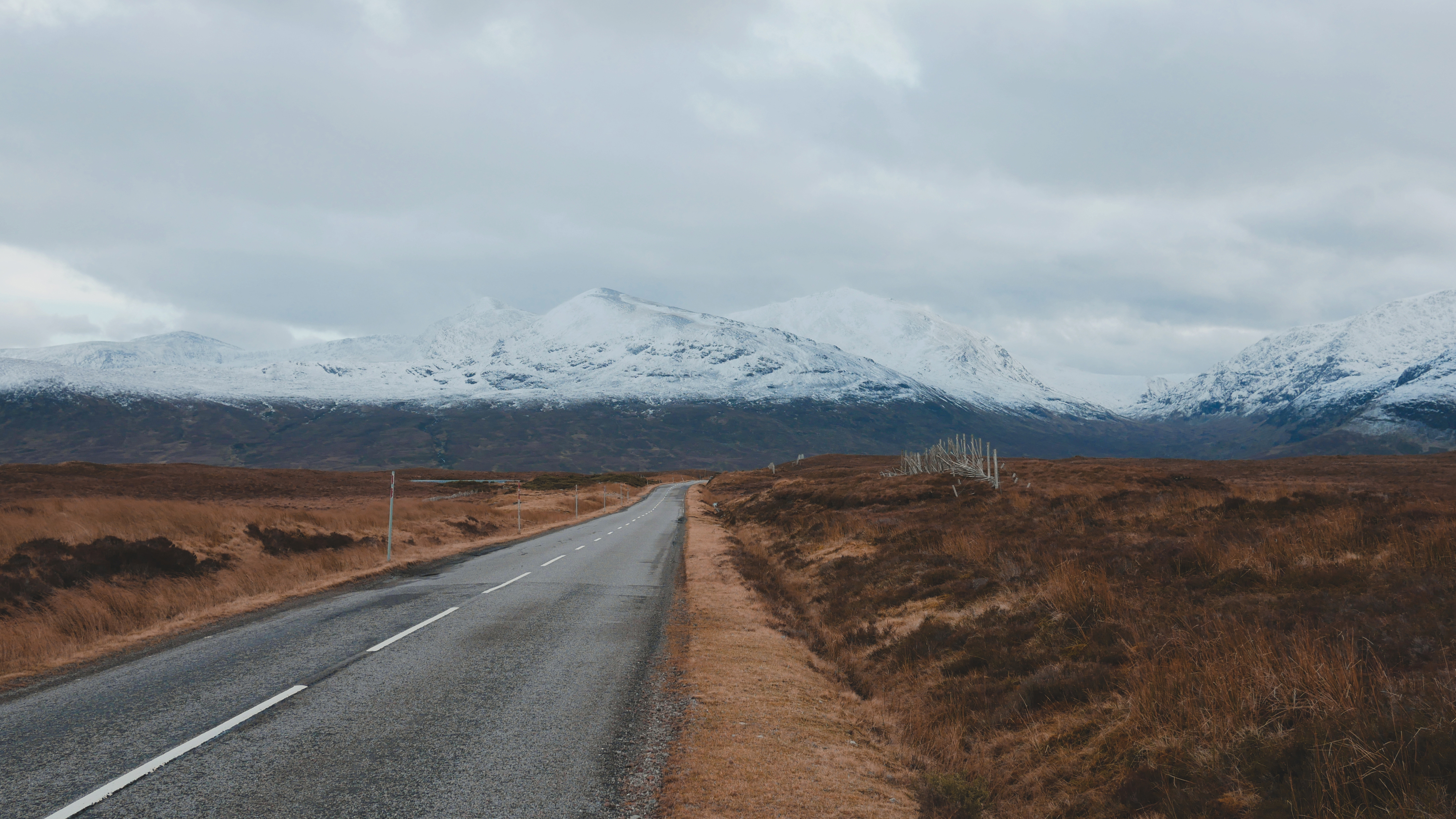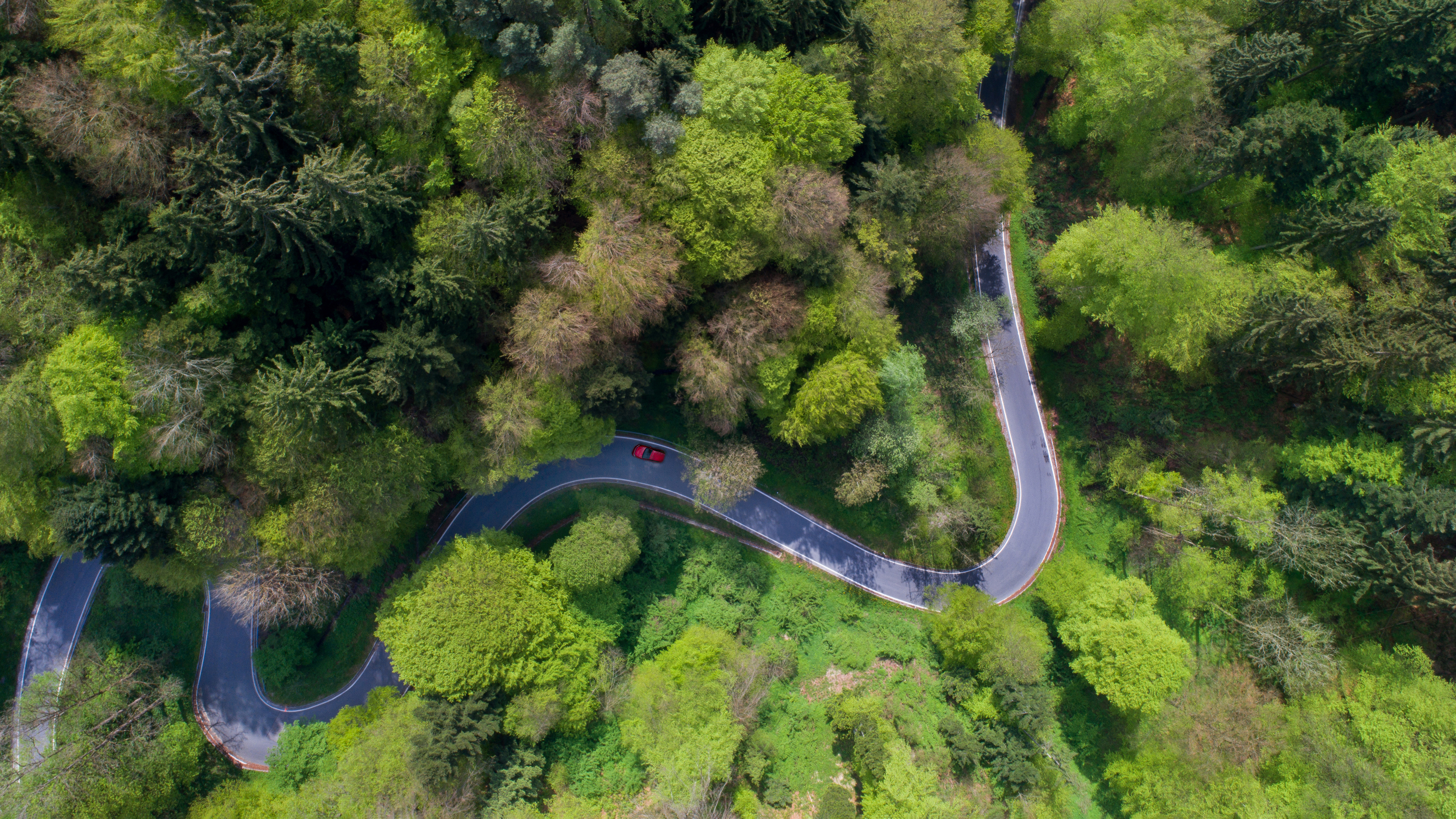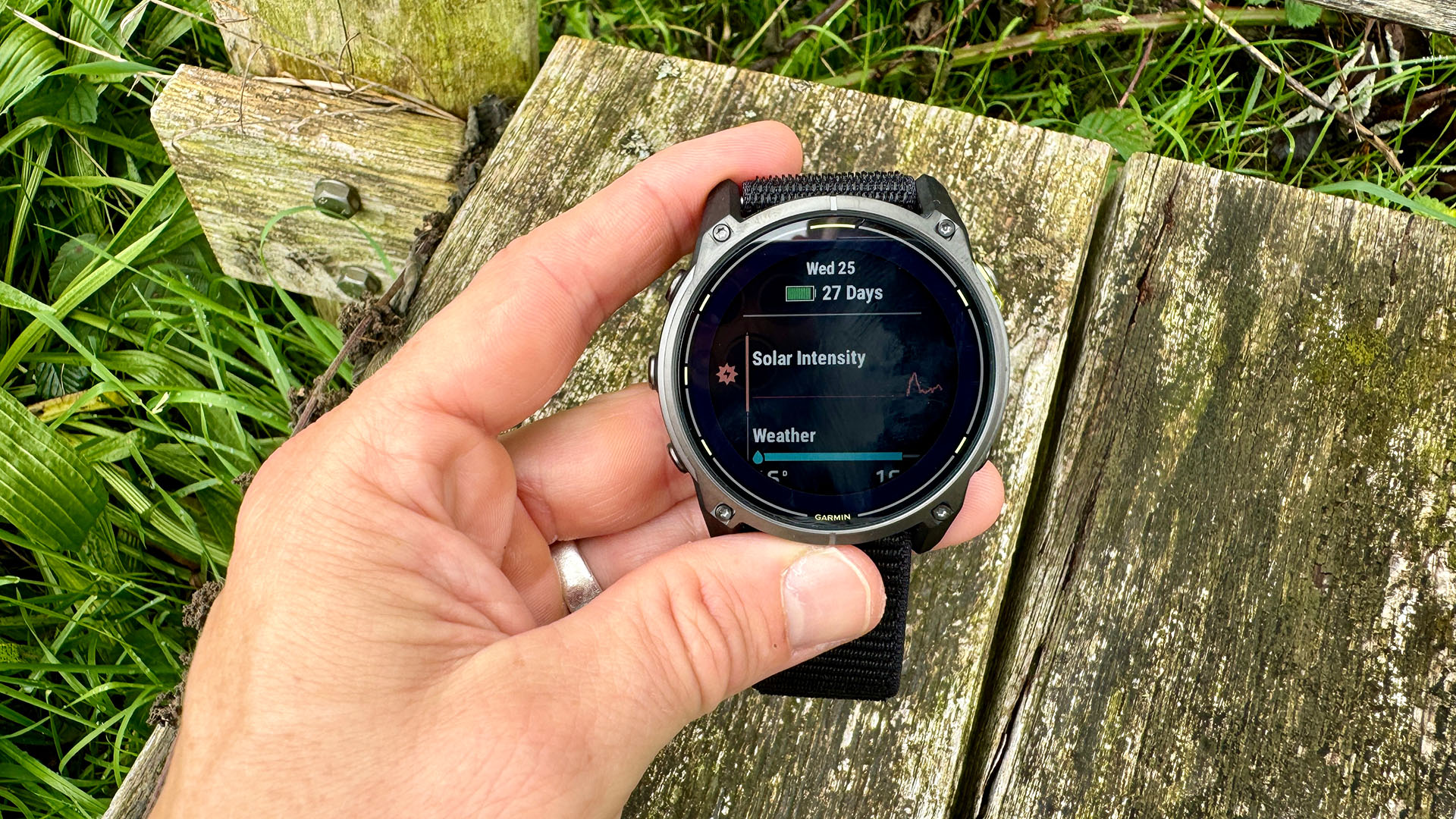

The summer holidays mark the beginning of the road trip season. People pack their bags, jump in the car, and head off to enjoy the holidays. I did it just last week, taking the new Range Rover up to Scotland for a scenic tour of the highlands.
Unfortunately, this is a very popular undertaking. Tourists, families, or friends all tend to head to the beach, or off on city breaks at the same time. And while the pandemic curbed this for a couple of years, the T3 Award-winning TomTom’s GO Navigation app (available on iOS, Android and Huawei) team are now seeing increased traffic.
From the Go Navigation team's data, it’s evident that both traditional seaside locations and city breaks are extremely popular, particularly in the month of August due to school holidays.
For those of you travelling to either of these places this summer, the team at TomTom have put together some tips to help you beat the rush. They looked specifically at weekends (for you daytrippers), to give you the information you need to spend less time idling in your car and more time doing what you love.
I could have really used these tips while I was sitting in three hours of traffic on the M6, so don't be like me, make sure you're fully prepared before you set off on your road trip.

Background from TomTom
Firstly, some background information: Our last ‘regular’ summer season was the pre-pandemic summer of 2019. People were still travelling locally and overseas, and in the UK we noticed that London, Edinburgh, Brighton, and Bournemouth were some of the most popular hotspots (for locals and tourists). When the sun shines, we traditionally head to the beach, lured by the sand, the sea and, of course, ice cream. But it’s not always easy to get there – these destinations often have less accessible roads, which lead to traffic flow issues. We’ve tracked these four summer hotspots from 2018-2021 on the last weekend of July (the Saturday of this weekend is known as Black Saturday – often marking the busiest day of the year on the road). This also marks one of the busiest periods of the year, carrying on well into August.
As expected, we saw a dip over the last few years due to the pandemic. However, 2021 held some surprises. Edinburgh and Bournemouth both showed increased travel times, whereas London and Brighton were at lower levels compared to the same weekend in 2018 and 2019. This means that there were higher or lower increases in congestion in these areas during these periods, thus resulting in varying overall travel times. So, let's say you were driving in Edinburgh last year on Saturday the 24th of July. At midday, the 30-minute drive from one end of Edinburgh to the other would take you an additional 15.3 minutes. And while 15 minutes doesn't sound like a lot, that's a 51% increase in travel time.
Sign up to the T3 newsletter for smarter living straight to your inbox
Get all the latest news, reviews, deals and buying guides on gorgeous tech, home and active products from the T3 experts
London was the most surprising, as midday (the time that seemed to be the most congested across all of these locations) of 2021 still wasn’t on par with the congestion levels of 2018 and 2019. In fact, 2021 was still 4% under in comparison to 2019. However, it’s important to note that London had traffic congestion from 8 am to 2 am the next morning – unlike its other counterparts. Brighton’s congestion levels as of 2021 were still a big 15% under that of 2019, which seems unusual considering it's well known by tourists and locals alike.
So what does this all mean for your summer trip?
Firstly, we expect to see further increases in travel times in all of these locations and across other hotspots in the UK. Considering this is the first year where most of us can freely travel (tourists included) it’s likely that Bournemouth, Brighton, London, and Edinburgh will be busy.
Traditionally, Saturday is the busiest day for travel, and while this remains true for most places, London and Bournemouth have seen a switch, with Sundays becoming more popular. If you’re travelling to these locations, try going on a Saturday; for Edinburgh and Brighton, we would recommend going on Sunday instead.
It’s worth noting that there’ll be increased travel times regardless of which day you choose – but don’t worry, we’ve put together some tips to help you beat the traffic and save time while doing it:

1. Use your Navigation App
These smartphone apps are designed to make the driving experience easier. They highlight speed cameras, and paid options are likely to give you more customizable routes, so you don’t go the same way as everyone who’s following free apps – plus, they often feature downloadable maps, so it doesn’t matter if you lose internet access. Just make sure that your map is up to date before you leave!
The TomTom GO Navigation app currently has a 7-day free trial here.
2. Use alternate routes
Suggestions of alternate routes can save you time and also provide you with vital information on the way. These routes can also be adjusted as need be. Need a fuel stop? Hungry? These apps can plan your route and account for delays, detours, and stops along the way.
3. Leave a bit earlier
Leaving earlier, even by 30 minutes, can make all the difference. Travelling in these locations at 8 am on a Saturday in 2021 gave drivers an average increase in congestion time of 8%. If we look at travelling on the same day at midday that time jumps up to a huge 43% increase. While waking up earlier on holiday isn’t ideal, it’s likely to save you time stuck in traffic. Put together a group playlist, grab breakfast on the way, and enjoy quieter roads!
4. Fill up at the beginning of your journey
Filling up closer to your destination isn’t always the best thing to do. Why? Firstly, if it's a holiday destination you’re going to, it's highly likely others will also be travelling there, and they’ll probably also need fuel. It’s better to fill up closer to home, or midway through your trip, and avoid the lines closer to your final destination. The same goes for those of you with electric vehicles: charge up before you go or stop at a charging station midway. Many navigation apps now provide you with insights into fuel prices which saves time and money.
5. Find your parking before you go
Quite a few of us will leave our parking to chance. It’s worth doing your research ahead of time and even booking a parking spot beforehand – that way your spot is confirmed; plus, prices are often lower, and it takes the hassle and stress out of searching. This is particularly important for those of you who have an electric vehicle, as charging spots can be limited.

As the Style and Travel Editor at T3, Spencer covers everything from clothes to cars and watches to hotels. Everything that's cool, stylish, and interesting, basically. He's been a part of T3 for over seven years, and in that time covered every industry event known to man, from CES and MWC to the Geneva Motorshow and Baselworld. When he's driving up and down the country in search of the greatest driving roads, he can be found messing around on an electric scooter, playing with luxury watches, or testing the latest fragrances.
-
 Garmin’s on a mission to update your wrist into oblivion as 100+ tweaks land on Fenix and Enduro watches
Garmin’s on a mission to update your wrist into oblivion as 100+ tweaks land on Fenix and Enduro watchesThe latest beta update looks comprehensive
By Matt Kollat Published
-
 5 reasons you should be excited about the brand new Samsung Bespoke AI Jet Ultra
5 reasons you should be excited about the brand new Samsung Bespoke AI Jet UltraNot sure if it’s obvious... but I can't wait to try it
By Lizzie Wilmot Published